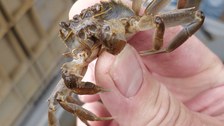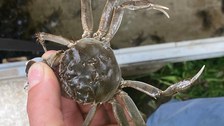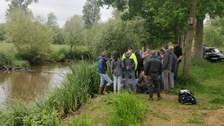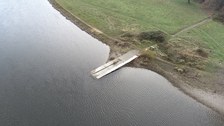Improve habitat quality and climate-adaptivity of freshwater ecosystems through management of alien invasive aquatic invertebrates
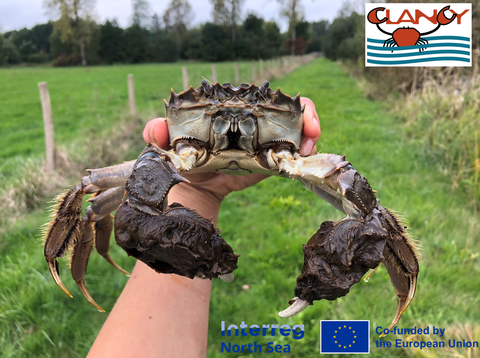
adulte Chinesische Wollhandkrabbe (Foto: Heleen Keirsebelik)
Table of contents
Brief description
The Clancy project aims to protect aquatic biodiversity in the North Sea Region from the invasive Chinese Mitten Crab (CMC), an alien species that has the potential to disrupt the hydro-morphodynamic characteristics and aquatic vegetation of coastal and inland water bodies. The project involves four countries in the region (Belgium, France, Germany, and Sweden) that will set up traps to monitor the CMC population. The trap designs will be adapted to local conditions and will be regularly checked to ensure the effectiveness of the monitoring programme. The collected data will be shared with partners to jointly develop transboundary management guidelines and disseminate them to stakeholders so that the proposed strategies can be directly implemented by the key users.
Media
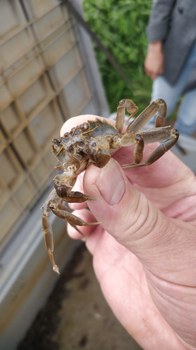
© Sengdavanh Thepphachanh
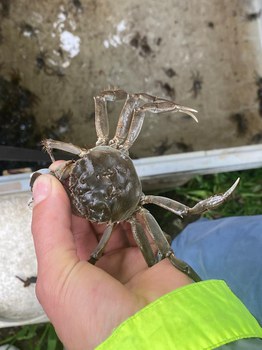
© Torsten Heyer
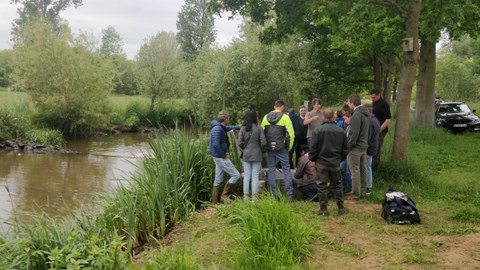
© Torsten Heyer
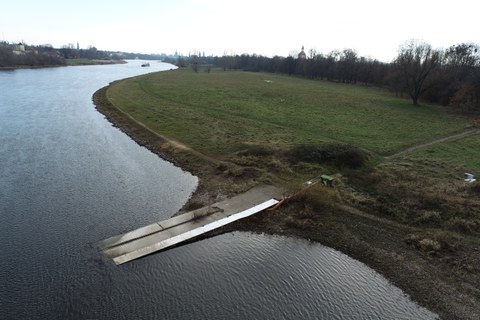
View of the crab trap on the River Elbe © M. Ehrig
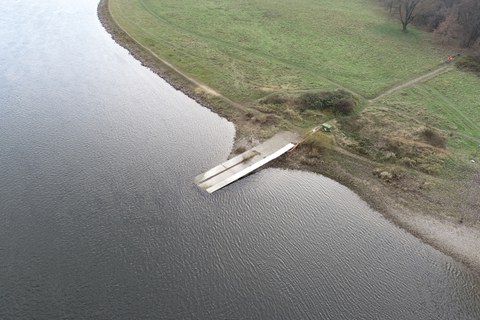
View of the crab trap on the River Elbe © M. Ehrig
Project data
|
Core information |
|
|
Website |
|
|
Duration |
02/05/2023- 01/05/2028 |
|
Type of funding |
Third-party funding |
|
Funding body |
EU Interreg North Sea |
|
TUD Research Priority Areas |
Energy, Mobility and Environment ' Water Research |
|
Sustainable Development Goals (SDGs) |
SDG 13 - Climate action SDG 14 - Water as a habitat SDG 15 - Land as a habitat |
|
Keywords |
Clancy, mitten crab, invasive aquatic species, climate change, transboundary impacts |
Project management
 © André Terpe
© André Terpe
Senior Researcher
NameMr Dr.-Ing. Torsten Heyer
Send encrypted email via the SecureMail portal (for TUD external users only).
Office of the Chair of Hydraulic Engineering
Visiting address:
Beyer-Bau, Room 04-25 George-Bähr-Str. 1
01069 Dresden
Office hours:
Please arrange a specific appointment in advance by e-mail.
Project management
 © André Terpe
© André Terpe
Research Associate
NameMs Dr.-Ing. Sengdavanh Thepphachanh
Send encrypted email via the SecureMail portal (for TUD external users only).
Office of the Chair of Hydraulic Engineering
Visiting address:
Beyer-Bau, Room 04-24 George-Bähr-Str. 1111
01069 Dresden
Office hours:
Please arrange a specific appointment in advance by e-mail.
Project partners
|
Partner:in |
Type |
Website |
|
European Project Center (EPC) |
Internal |
https://tu-dresden.de/forschung-transfer/services-fuer-forschende/european-project-center |
|
Flanders Environment Agency (Belgium) |
External (project management) |
|
|
Province of East-Flanders (Belgium) |
External |
https://www.oost-vlaanderen.be/ |
|
University of Antwerp (Belgium) |
External |
https://www.uantwerpen.be/en/ |
|
Study Group of Coastal and Estuarine Ecosystems (France) |
External |
https://www.oost-vlaanderen.be/ |
|
Cellule de Suivi du Littoral Normand (France) |
External |
https://www.csln.fr/ |
|
University of Skövde (Sweden) |
External |
|
|
Alfred Wegener Institute Helmholtz Center for Polar and Marine Research (Germany) |
External |
https://www.awi.de/ |
Publications
FIS Link / DOI (if possible integration as FIS-Box)
Further information
|
Date of publication |
News/Radio/TV program |
Source |
|
January 30, 2024 |
https://edition.cnn.com/world/chinese-mitten-crab-invasive-species-europe-solution-scn-c2e-spc-intl |
CNN |
|
April 8, 2024 |
https://www.sat1regional.de/chinesische-wollhandkrabbe-forscher-wollen-invasion-stoppen/ |
Sat.1 Regional |
Funding
The Clancy project is funded by the EU Interreg North Sea under Priority 3: Climate Resilience, Biodiversity and Pollution.

